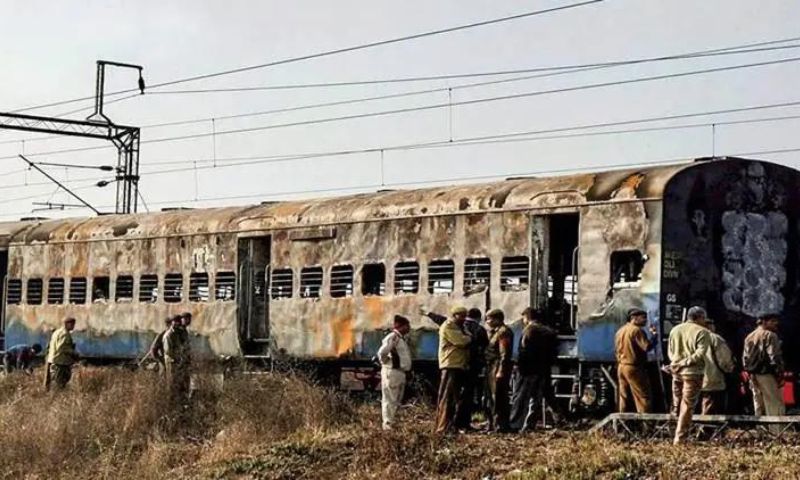ISLAMABAD: The Samjhauta Express incident stands as a haunting reminder of the fragility of peace between India and Pakistan, marred by the devastating consequences of terrorism. On the fateful night of February 18, 2007, two bombs ripped through the carriages of the Samjhauta Express that connected Delhi and Lahore. What was meant to symbolize peace and cooperation, the train journeying across the border instead became a scene of horror and tragedy.
The blast killed 68 people, mostly Pakistani civilians, and injured 50 others. As the train neared Diwana station in Haryana, approximately 80 km north of New Delhi, the explosions shattered the silence, leaving behind a trail of destruction and sorrow.
The Samjhauta Express, which means “compromise” or “agreement” in Hindi and Urdu, was inaugurated in 1976, serving as a beacon of hope amid strained relations between the two neighboring nations. It stood as the sole rail link between India and Pakistan until the Thar Express reopened in 2006, facilitating journeys for individuals yearning to visit loved ones or sacred sites across the border.
However, the tragedy of the Samjhauta Express bombing went beyond its immediate impact. It was a deliberate attempt to disrupt the nascent progress in bilateral relations between India and Pakistan. The timing was ominous, occurring just a day before scheduled peace talks between the two nations, casting a dark shadow over diplomatic efforts for reconciliation.
In the aftermath, investigations by the National Investigation Agency (NIA) and other Indian agencies were clouded by suspicion and controversy. Despite promises of justice, the prosecution of the case was riddled with delays, discrepancies, and allegations of tampering with evidence. Key suspects linked to the Rashtriya Swayamsevak Sangh (RSS), a right-wing Hindu nationalist organization, were acquitted due to a purported lack of evidence, raising questions about the efficacy and integrity of the investigative process.
The involvement of individuals associated with extremist groups and the Indian Military Intelligence further deepened the intrigue surrounding the Samjhauta Express bombing. The suspicious circumstances surrounding the death of key planner Sunil Joshi, and the subsequent assassination of Anti-Terrorist Squad chief Hemant Karkare – who had been investigating the case – only added layers to the complex narrative.
Amidst these troubling revelations, the quest for truth and accountability continues. The widow of Hemant Karkare has bravely brought forth evidence to the Indian Supreme Court that showed that an Indian army officer named Col Shrikant Prasad Purohit (who was then serving in the Indian Military Intelligence) was responsible for the murder of Hemant Karkare. Her evidence also revealed the links between RRS terrorists and Indian military intelligence.
As the scars of the Samjhauta Express bombing continue to linger, it serves as a stark reminder of the urgent need for transparency, justice, and sincere efforts towards lasting peace between India and Pakistan. Only through unwavering commitment to truth and reconciliation can the wounds of the past be healed, and the promise of a peaceful future be realized.























